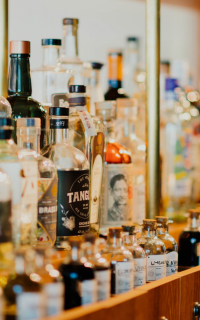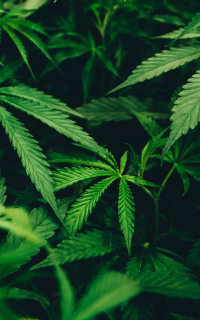A harm reduction approach.
Dalhousie takes a trauma-informed, non-judgemental approach to supporting students.
Harm reduction is a term for policies and practices that reduce negative physical, social, and legal impacts of substance use. It is an evidence-based, client-centred approach that provides people who use substances a choice of how they will minimize harms through non-judgemental and non-coercive strategies in order to enhance skills and knowledge to live safer, healthier lives.
A harm reduction approach at Dalhousie means that any student can access non-judgmental health and well-being supports and services regardless of their use of substances.
Substance-related disorders are classified into two groups: substance use disorders and substance-induced disorders. A substance use disorder is diagnosed by a healthcare professional and is a treatable mental health condition that affects a person's brain and behaviour, whereas a substance-induced disorder is a mental health condition caused by overuse of a substance.
The teams at Student Health & Wellness are here to have open, non-judgemental conversations with students about substance use. Students who are sober-curious, looking to take a tolerance break, or need support for recovery should reach out to us!
Here are 4 signs that could indicate it is time to reach out for help
- Causing harm to yourself or others because of substance use.
- Unable to quit or take a break on your own from substance use.
- Experiencing severe consequences from your substance use. For example, it is impacting relationships with family and friends, academic consequence’s like falling grades or probation, or losing a job.
- Life revolves around your use of substances. When you are no longer able to live your life without the substance use constantly present in your thoughts. For example:
- Life revolves around those who enable or support the use of substances.
- A large amount of time and money are spent seeking substances.
- More time is spent seeking substances and recovering from the high/intoxication than is desired.
Find support at Dal
Are alcohol, cannabis or other drugs impacting your academics, relationships or daily life? Are you sober-curious, looking to take a tolerance break, or need support for recovery?
Healthcare providers at Student Health & Wellness are trained in trauma-informed and anti-oppressive approaches to support students who use substances. Book an appointment with a doctor, same-day counsellor, nurse or social worker at Student Health & Wellness or Health Services to discuss substance use supports.

Alcohol Use Safety
Whether you choose to drink, or choose not to, we want students to know the facts so they can make an informed choice about what is right for them.
While some students choose to drink, there are many students who do so moderately, or who don’t drink at all.
When considering alcohol use, figure out why you want to drink, and whether it is right for you and your health. Remember, you can still have fun and socialize when drinking in moderation or without drinking.
Canada’s Guidance on Alcohol & Health says that if you choose to drink, it’s better to drink less.
Follow Canada's Guidance on Alcohol & Health to reduce your risk when consuming alcohol.

Cannabis Use Safety
Whether you choose to use cannabis, or choose not to, we want students to know the facts so they can make an informed choice about what is right for them.
While some students choose to use cannabis, there are many students who do in moderation, or don’t use at all!
When considering cannabis use, figure out why you want to use, and whether it is right for you and your health. Consider delaying cannabis use until later in life, since the brain is still developing until age 25.
Canada’s Lower-risk Cannabis Use Guideline says that when consuming cannabis, you should start low and go slow. Follow Canada’s Lower-risk Cannabis Use Guidelines to reduce your risks when consuming cannabis.
Good Samaritan Drug Overdose Act
The Good Samaritan Drug Overdose Act provides legal protection for those seeking help during an emergency or potential overdose/poisoning.
It applies to anyone seeking emergency support during an overdose/poisoning, including the person experiencing an overdose and anyone else on the scene.
The Act protects the person in distress, and the person who seeks help, whether they stay or leave from the overdose scene before help arrives. The Act also protects anyone else who is at the scene when help arrives.
Keep this in mind and take care of yourself and those around you – you won’t get in trouble if you or a friend calls 911 for help.
Illegal Substance Use
Whether you choose to use legal (non-prescribed) or illegal drugs or substances there are always some risks. Especially when using medication or drugs not prescribed to you or accessed from an illegal drug supply.
It is important to know the facts to reduce risks if you choose to use. If you choose to use, take a Naloxone/Narcan training, carry a Naloxone kit and pick up a Fentanyl test strip kit from the Dal Care Hub.
Getting help and staying safe
Are you experiencing an emergency? Are you concerned about a friend or are unsure if it is an emergency? Is a friend unresponsive, injured, or in need of support?

